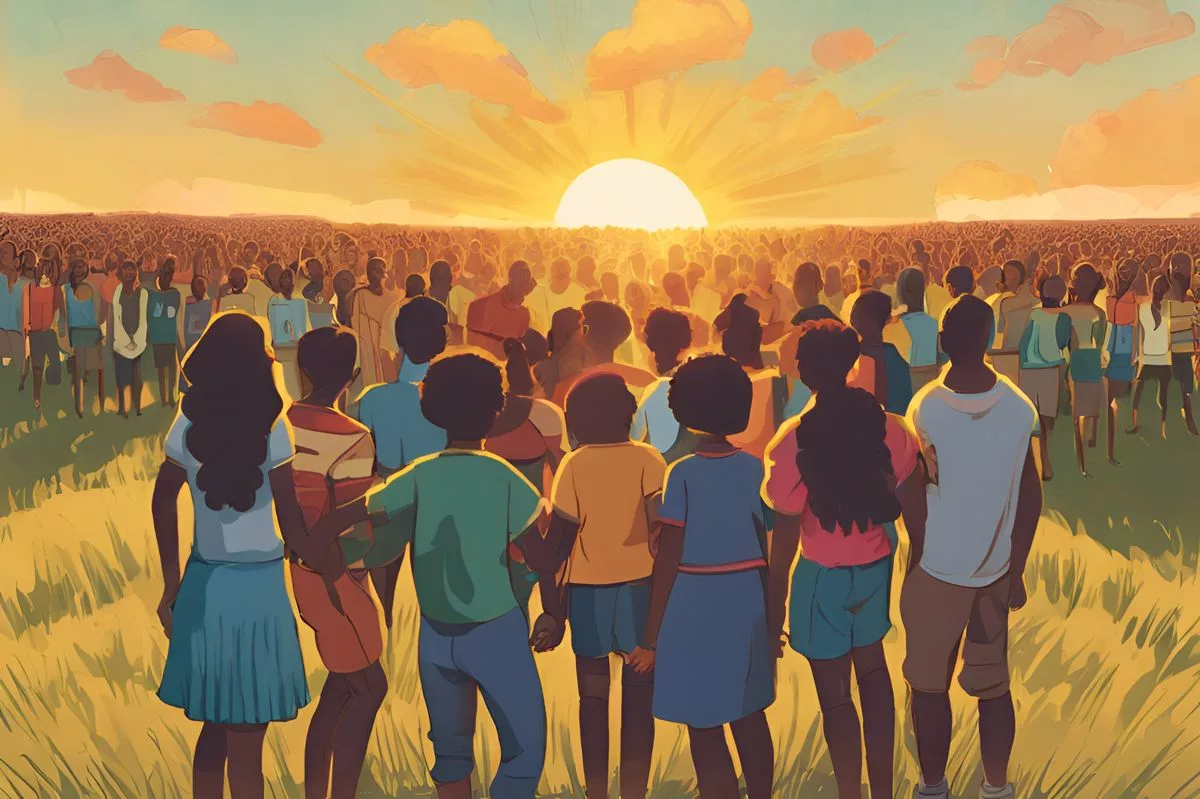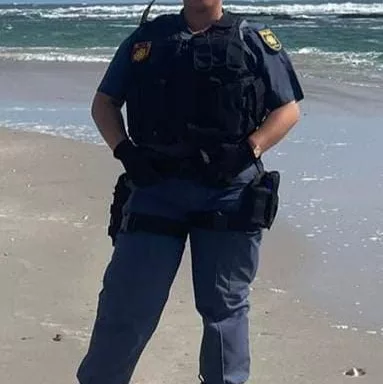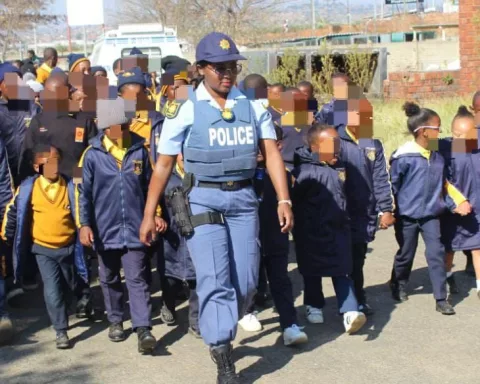South Africa’s Youth Day, celebrated on June 16th, pays tribute to the bravery and fortitude of young citizens in the country. It commemorates the Soweto Uprising of 1976, where black students protested against repressive educational laws. Today’s youth continue to draw inspiration from this event and are actively involved in social and political movements, advocating for change. The government has established legal frameworks and departments dedicated to empowering and uplifting the youth, aiming to create a more equitable society. South Africa believes in the potential of its youth as agents of social transformation, and aspires for a brighter and more just future.
What is South Africa’s Youth Day?
South Africa’s Youth Day is an annual event held on June 16th to pay tribute to young citizens for their courage and fortitude. It commemorates the Soweto Uprising of 1976, where black students protested against repressive educational laws. Today’s youth continue to draw inspiration from the bravery and activism of the past and are actively involved in social and political movements, advocating for change. The government has established legal frameworks and departments dedicated to empowering and uplifting the youth, aiming to create a more equitable society.
Annually, on the 16th of June, South Africa pays tribute to its young citizens for their courage, inventiveness, and fortitude. This celebration, known as Youth Day, is an integral event that not only respects historical moments but also acts as a stimulus for prospective advancements. Within the framework of South Africa’s rich history, the younger generation has consistently held a noteworthy role, and they perpetuate this legacy today, moulding their society through their activism and involvement.
Recalling the Indomitable Bravery of Youth
Commemorating the Soweto Uprising
The essence of Youth Day is to pay tribute to the unforgettable historical event known worldwide as the Soweto Uprising of 1976, a crucial juncture in South Africa’s resistance against apartheid. On this landmark day, black students from diverse backgrounds stood in unity to oppose repressive educational laws, asserting their right to equality and respect.
The Brave Youths of the Past
The audacity and altruism of these young individuals, who bravely defied a system intended to curtail their rights, is an unforgettable chapter in history. It is this legacy that the present youth draw motivation from, resolved to tackle the existing challenges.
Contemporary South African Youth: Tenacious and Ingenious
The Rise of the Resourceful Youth
In the present day, South African youth, classified as individuals aged between 15 to 34, form approximately a third of the country’s population of 62 million. As per the National Youth Development Agency’s Status on Youth Report 2022, youth-headed households constitute 26.5% of the total. In spite of socio-economic hurdles such as high unemployment rates particularly in rural areas, South African youth have demonstrated their tenacity and ingenuity.
Active Involvement in Society
They are dynamically involved in numerous aspects of society, leading social and political movements, and advocating for change on issues such as gender inequality, racial discrimination, and environmental sustainability.
Amplifying Youth Representation in Parliament
Increasing Youth Voices in Parliament
In an endeavour to augment youth representation, the 7th Parliament’s roster of designated members includes a minimum of 79 individuals under the age of 40. The youngest Member of Parliament, who exemplifies youth representation, is merely 20 years old. But representation is not the only means by which Parliament has strived to uplift the youth.
Building Legal Framework for Youth Development
For the past three decades, it has established a robust legal framework to address the challenges confronted by young people in the nation.
Guaranteeing Legal Rights and Safeguards for Youth
South Africa’s Constitution and Youth Rights
South Africa takes pride in being one of the rare countries globally with a specific section in its Constitution devoted to children’s rights. Section 28 of the Bill of Rights mandates that every child has the right to fundamental nutrition, accommodation, health services, social services, and protection from mistreatment, neglect, abuse, or degradation. This applies to youth aged between 15 to 18 years.
Legislation Promoting Youth Development
In over 30 years of democracy, Parliament has enacted key legislation promoting youth development, safeguarding young workers, ensuring education for all children, and developing the skills of a youthful workforce. These include the National Youth Development Agency Act of 2008, the Children’s Act of 2005, the Child Justice Act of 2008, the Basic Conditions of Employment Act of 1997, the South African Schools Act of 1996, and the Skills Development Act of 1998. Parliament has also ratified several international and regional treaties to secure the rights of young individuals.
Empowering Youth through Government Initiatives
Governmental Bodies and Youth Empowerment
In addition to these legislative initiatives, South Africa has instituted departments and entities with budgets dedicated to empowering and uplifting the youth. These include the Department of Women, Youth, and Persons with Disabilities, the National Youth Development Agency, and the Presidential Youth Employment Intervention. The Portfolio Committee on Women, Youth, and Persons with Disabilities has consistently exercised its oversight over these entities and their initiatives.
Utilizing Youth Potential for a Bright Future
National Youth Policy and its Objectives
The National Youth Policy (NYP) 2020-2030, formulated by the Department of Women, Youth, and Persons with Disabilities, targets youth at local, provincial, and national levels. It emphasizes remedying historical injustices and addressing contemporary challenges faced by young individuals. The policy will be periodically reviewed and updated to ensure effective implementation of interventions, stressing on cooperation among varied stakeholders, including governmental bodies, civil society, and the private sector.
Aspiring for an Equitable Society
As South Africans commemorate Youth Day, Parliament reiterates its belief in the inherent potential of the youth as agents of social transformation. By focusing on education, empowerment, and active participation, the youth can carry forward the work of their forebears, metamorphosing South Africa into an equitable society. They indeed represent the rising sun of the future, radiating brightly and optimistically, lighting the way towards a more just society.
What is South Africa’s Youth Day?
South Africa’s Youth Day is an annual event held on June 16th to pay tribute to young citizens for their courage and fortitude. It commemorates the Soweto Uprising of 1976, where black students protested against repressive educational laws. Today’s youth continue to draw inspiration from the bravery and activism of the past and are actively involved in social and political movements, advocating for change. The government has established legal frameworks and departments dedicated to empowering and uplifting the youth, aiming to create a more equitable society.
How are South African youth involved in society?
South African youth are dynamically involved in numerous aspects of society, leading social and political movements, and advocating for change on issues such as gender inequality, racial discrimination, and environmental sustainability.
How does Parliament strive to uplift the youth in South Africa?
Parliament in South Africa has strived to uplift the youth in several ways. Firstly, by augmenting youth representation, with a minimum of 79 individuals under the age of 40 in the 7th Parliament. Secondly, by establishing a robust legal framework to address the challenges confronted by young people in the nation. Lastly, by instituting departments and entities with budgets dedicated to empowering and uplifting the youth.
What are some key legislation promoting youth development in South Africa?
In over 30 years of democracy, Parliament has enacted key legislation promoting youth development, safeguarding young workers, ensuring education for all children, and developing the skills of a youthful workforce. These include the National Youth Development Agency Act of 2008, the Children’s Act of 2005, the Child Justice Act of 2008, the Basic Conditions of Employment Act of 1997, the South African Schools Act of 1996, and the Skills Development Act of 1998.
What is the National Youth Policy in South Africa?
The National Youth Policy (NYP) 2020-2030, formulated by the Department of Women, Youth, and Persons with Disabilities, targets youth at local, provincial, and national levels. It emphasizes remedying historical injustices and addressing contemporary challenges faced by young individuals. The policy will be periodically reviewed and updated to ensure effective implementation of interventions, stressing on cooperation among varied stakeholders, including governmental bodies, civil society, and the private sector.
How does South Africa aspire for an equitable society through its youth?
As South Africans commemorate Youth Day, Parliament reiterates its belief in the inherent potential of the youth as agents of social transformation. By focusing on education, empowerment, and active participation, the youth can carry forward the work of their forebears, metamorphosing South Africa into an equitable society. They indeed represent the rising sun of the future, radiating brightly and optimistically, lighting the way towards a more just society.












